You already know that taking calcium is critical to your bone health. In fact, 99% of the calcium in your body lies in your bones and teeth. But you also need calcium for a laundry list of other functions, like muscle contractions; regulating normal heart rhythms; blood clotting; and transmitting signals between your brain cells and your nerves.
And while you may eat plenty of calcium-rich foods and even take calcium supplements, that doesn’t mean you’ll get the full benefit of all that calcium.
In fact, just because a supplement facts label says there is 750 mg of calcium, that doesn’t mean that’s how much you end up absorbing! Same goes for healthy, calcium-rich foods like spinach and almonds.
Because as you’re about to see, there are several reasons why some of that calcium can end up wasted.
You’ll discover those reasons in a moment. But you’ll also discover some nutrients that can help you absorb more of your calcium.
Then, you’ll see a few common activities that can interfere with calcium absorption. And we’ll show you the best way to take your calcium supplement, along with the most absorbable type.
How to Increase Calcium Absorption
Let’s start with some nutrients that help you better absorb calcium. We’ll call them calcium “friends.” And then you’ll see some other ingredients that interfere with calcium absorption in your body. We’ll call those calcium “foes.”
Calcium Friends
Vitamin D: This one isn’t a surprise. But it’s important to include, especially since a recent survey of nearly 5,000 American adults showed about 42% are vitamin D deficient.1 Even though we know we need it!
Vitamin D enables our active absorption of calcium, and that accounts for 85% of the calcium we absorb. Without the help of vitamin D, you’ll absorb only 10-15% of the calcium you consume.
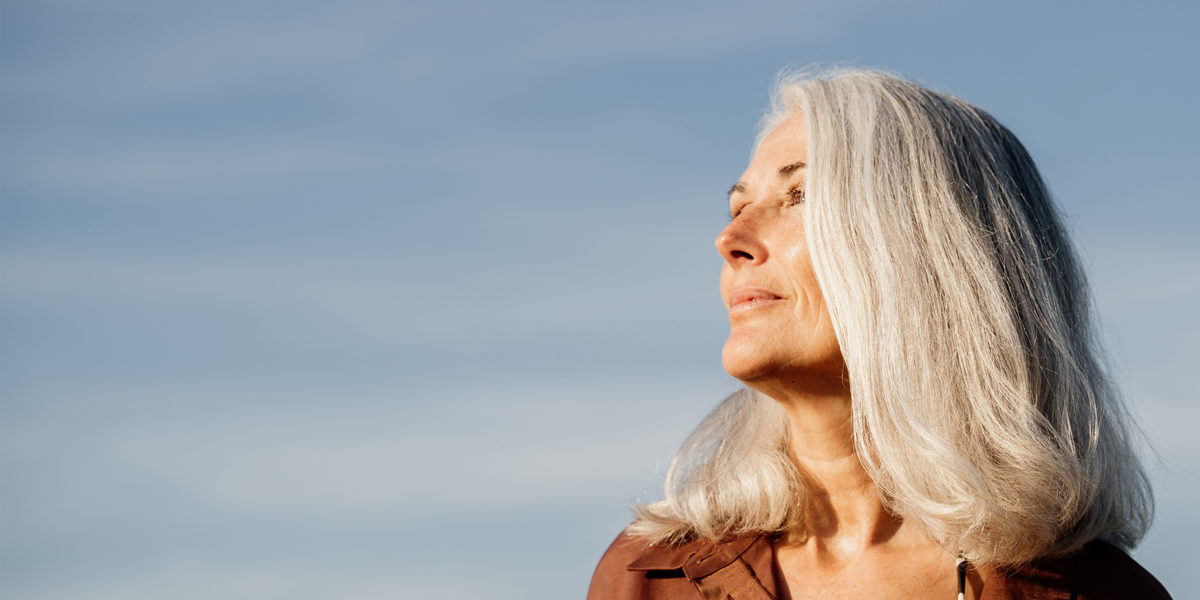
Vitamin K2: This is a crucial nutrient for calcium absorption that many people, including many doctors, aren’t aware of. Vitamin K2 activates the proteins that pull calcium into your bones, and keep it from depositing in soft tissues like arteries, kidneys, and the brain. Vitamin K2 in its MK-7 form, specifically is the best at this.
Magnesium: Magnesium and calcium work together to create strong bones. That’s because magnesium helps with calcium absorption. Magnesium is the cofactor for the enzyme in the kidneys that converts vitamin D into its ready-for-action hormonal form.
Medical research shows the “golden ratio” for calcium to magnesium intake is roughly 2:1.2,3 That’s two parts calcium for every one part of magnesium, for optimal health.
Fruits and veggies: These are great for all aspects of health. But because they’re so vitamin- and mineral-rich, they contain many helper nutrients to get calcium where you want it. Fruits and vegetables make your overall body pH more alkaline, which reduces calcium loss.4
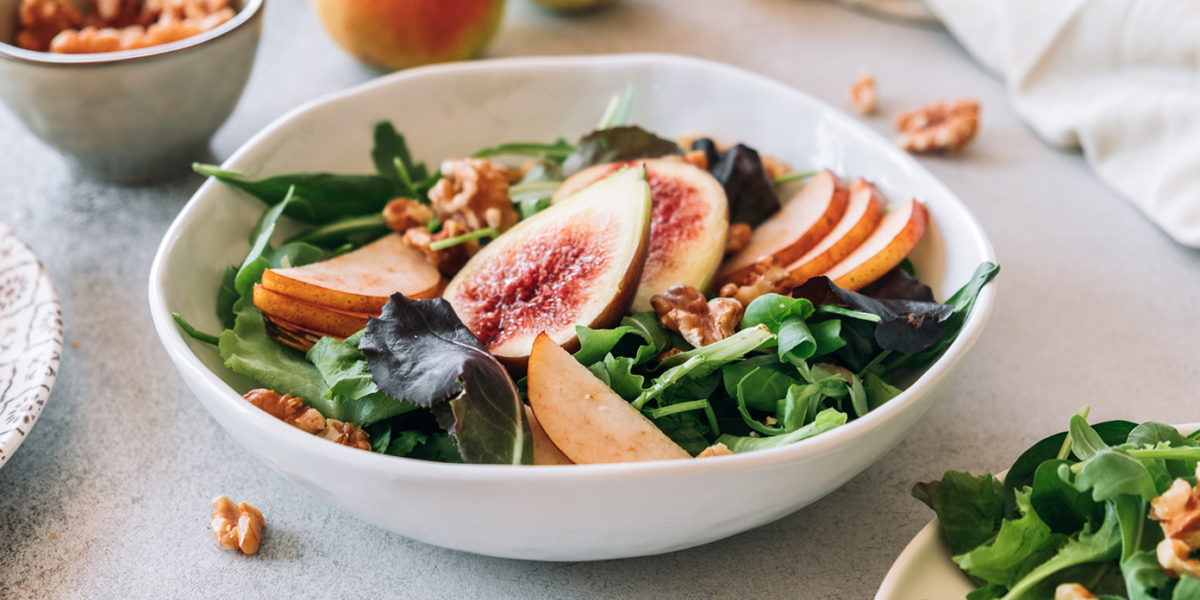
Now on to some ingredients that block calcium from getting absorbed.
Calcium Foes
Oxalates: Otherwise known as oxalic acid. Oxalates are present in many plants. And they can bind with calcium, which blocks some of it from getting absorbed in your body.5
Now, oxalates are not harmful when consumed in normal amounts. Indeed, there are plenty of oxalate-rich foods like spinach, beets, and raspberries that you shouldn’t be without! But this is just a reminder that too much of anything is usually unwise.
That said, people with chronic kidney disease or who produce recurring calcium oxalate stones should avoid oxalate-rich foods.
Sodium: Salty foods impede calcium in a few ways. On top of sodium blocking calcium absorption, it can also cause calcium to leave your body through urine.6 And when blood levels of calcium get low, your body actively extracts calcium from bone to make up the difference!
Phosphorus: You may know that phosphorus can actually be a helpful nutrient to pair with calcium. But what you may not know is that too much phosphorus can have the opposite effect.7
Too much phosphorus can disrupt the regulation of calcium and vitamin D. One of the top culprits of excess phosphorus is cola-type sodas.8 And no, not just regular cola; diet colas contain the same amount of phosphorus, so “diet” drinks won’t do you any favors here.
Newer research on a cross-section of over 17,000 adults even implicates soft drinks of all types. Research published in the journal Nutrients showed excessive intake of carbonated drinks and “sugar-sweetened dairy drinks” had negative effects on calcium metabolism.9
Not only did it disrupt the calcium/phosphorus balance, but it altered the acidity of participants’ bodies, leading to lower bone density and elevated risk of fractures! Those who drank soft drinks daily had over double the risk of suffering fractures.
These are all foods and compounds that can cause poor absorption of calcium. Now let’s look at several habits and activities that also interfere with calcium metabolism.
What Interferes With the Absorption of Calcium?
The following activities can take calcium out of bone:
Drinking and smoking. Smoking interferes with how your body processes vitamin D. It also lowers estrogen levels, which can make your bones weaker.
Studies even show it can greatly increase risk of fracture!10
Excess alcohol consumption (more than one drink per day for women or two for men) can also disrupt calcium balance in your body, and impede vitamin D production.
Too much alcohol can also decrease production of osteoblasts, your bone-building cells. Plus, it can increase fat cell amount, lower estrogen levels, and destroy osteocytes, the cells that regulate bone remodeling. (All this on top of the well-documented damage to your liver!)
Lack of weight-bearing exercise. You need to move! Most importantly, you need the muscle contractions from weight-bearing exercise to add pressure to your bones. This is what activates osteocytes, those special bone cells mentioned earlier. Once activated, they initiate the bone-renewal and strengthening process that keeps your bones healthy.

You don’t have to go crazy with weights or long, arduous workouts, but you do need to engage in some form of weight-bearing activity for about an hour every day. Stay consistent so your bones receive the “reps” they need from your muscles’ force. Your musculoskeletal system directly impacts bone health, so, “Move it or lose it!”
Medications. There are plenty of medications that can impact calcium absorption. One common type are cholesterol-lowering meds, known as bile acid sequestrants.12 They can block calcium absorption and cause more calcium to leave your body through urine.
Another popular class of drugs are those that treat heartburn and GERD. Since they prevent stomach acid production, there’s no acid to release and solubilize calcium, preparing it for absorption. That means you can’t absorb calcium ions that are in your food or are still bound to their stabilizing partners (like carbonate in calcium carbonate) in your supplements.
Other common types of drugs that interfere with calcium absorption include corticosteroids and hypertension medicines.
Endocrine disruptors. These are everyday chemicals that interfere with your endocrine system. That is, the glands in your body that produce and regulate hormones.
On top of messing with hormone levels (which help control bone density), many endocrine disruptors also inhibit calcium absorption.13
Here’s just a short list of common sources of endocrine disruptors, like BPA and phthalates: The lining of metal food cans, plastic bottles, thermal paper receipts, detergents. And plenty of cosmetics, like many kinds of makeup, shampoos, hairsprays, and nail polish.
If you see the word “fragrance” or “perfume” in the ingredients list, you almost certainly have endocrine disruptors.
Now, let’s look at calcium supplements and how to maximize the calcium you absorb from them.
How to Take Calcium Supplements for Best Absorption
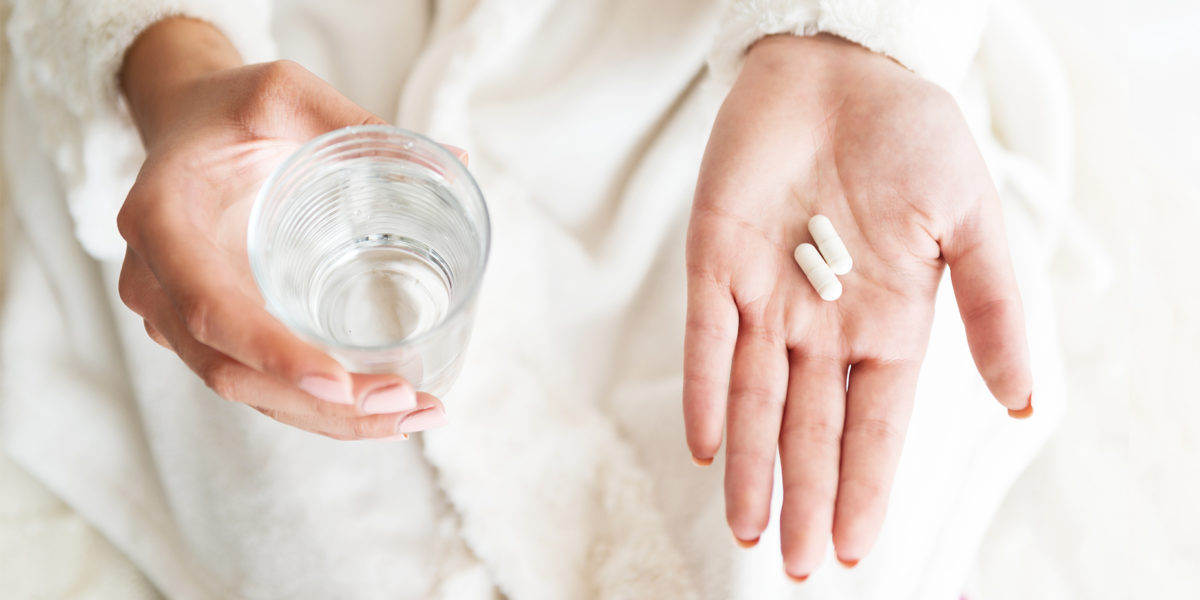
It’s best to take calcium at 350 – 500 mg at a time with a meal to ensure stomach acid production, and also to ensure you are drinking enough water to avoid constipation. Any more calcium than this, and a fair amount of it will be eliminated. If you are taking more than this amount each day, be sure to space it out for efficient absorption.
Take your calcium with food. That’s because you need stomach acid to help dissolve the calcium for best absorption. There is one exception to this, which we’ll cover in a moment.
Don’t take calcium and iron at the same time. Be sure to space them out from one another by at least two hours.
If you’re taking any prescription medications, you should ask your doctor to ensure the proper scheduling of calcium with the medications. You can also talk to a knowledgeable Bone Health Expert to set up a personalized daily supplement (and medication, if applicable) plan.
Now, what about the one exception for taking calcium with food? Calcium citrate doesn’t require stomach acid to be absorbed, so it’s great for those taking medications that reduce stomach acid or have had gastrointestinal bypass surgery.
Note, calcium citrate has a relatively low calcium content compared to other popular types like calcium carbonate and calcium hydroxyapatite, so you’ll need to take more pills to get the same amount of calcium.
Which Form of Calcium Is Best Absorbed?
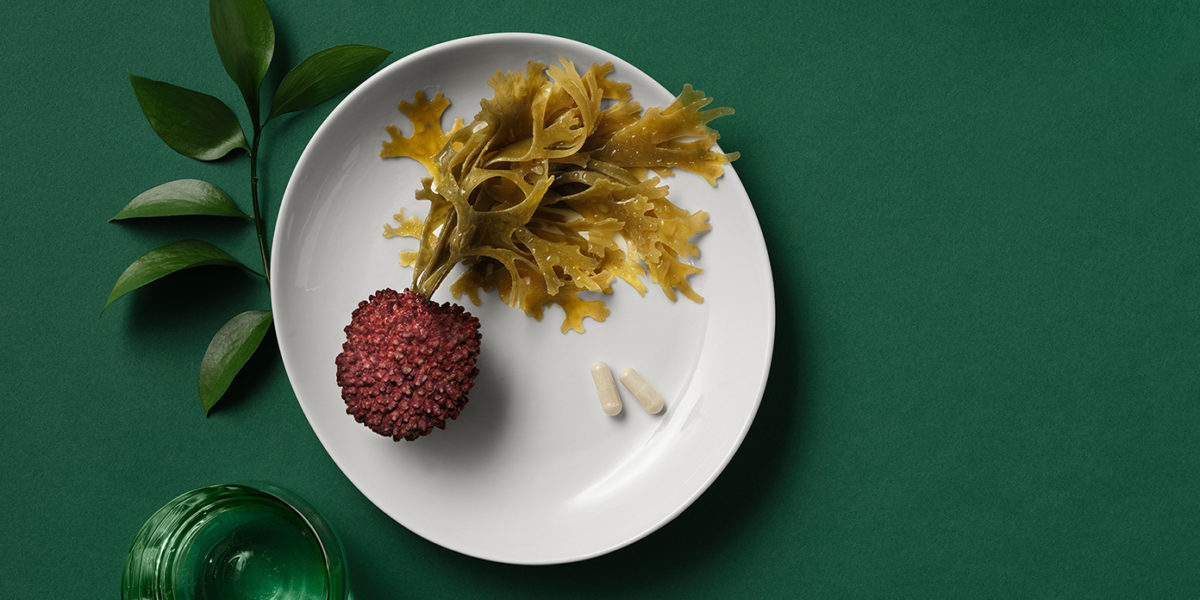
That’s a good question. Because of its ability to be absorbed with or without stomach acid, many people consider calcium citrate the “best” absorbed calcium.
But that doesn’t necessarily mean it’s the best form of calcium for you. Part of the importance of absorption is how the calcium interacts with your body. And that includes how easy it is on your gastrointestinal tract.14
Calcium citrate, calcium carbonate, and nearly all other popular forms of calcium supplements are derived from rocks. Of course, your body wasn’t designed to digest rock.
Plus, rocks are devoid of the Calcium Friends you saw above. Because they lack vitamin D3 and magnesium, rock-based calcium supplements tend to cause constipation. And because they lack vitamin K2, they can increase your risk of calcium depositing in your soft tissues like arteries, kidneys, and eyes. Of course, that means there’s less calcium where you do want it — your bones!
That’s why your best source of calcium comes from plants.
Plant-based calcium does come with many Calcium Friends. That’s because the plant has absorbed and metabolized these nutrients that help you better utilize the calcium.
If you’d like to discover more about plant-based calcium, including a unique type shown in studies to increase bone density, take a look at AlgaeCal Plus.
It naturally contains all the key trace minerals that work with calcium to build healthy bones. Plus, there are clinically-studied doses of boron, magnesium, vitamin D3, and K2 (in its most potent MK-7 form).
Takeaways
It’s important to know: What you see isn’t what you absorb when it comes to calcium.
But the more you incorporate the Calcium Friends into your diet, and moderate the Calcium Foes, you should be in good stead.
Sometimes you can’t avoid the activities that impede calcium absorption (like taking necessary medication). But knowledge is power when it comes to your health.
No matter what type of calcium supplement you take, you’ve now got clarity on the best way to take it for optimal absorption. You also know which calcium supplements are best absorbed, best utilized, and easiest on your body!
References
- Kimberly Y Z Forrest, Wendy L Stuhldreher, “Prevalence and correlates of vitamin D deficiency in US adults” Nutr Res. 2011 Jan;31(1):48-54.
- Rosemary DeLuccia, May Cheung, “Calcium to Magnesium Ratio Higher Than Optimal Across Age Groups (P10-100-19)” Current Developments in Nutrition. 2019 Jun;13(3)
- Elizabeth A. Hibler, Xiangzhu Zhu, “Pysical activity, dietary calcium to magnesium intake and mortality in the National Health and Examination Survey 1999-2006 cohort” Int J Cancer. 2019 Aug;31
- Bess Dawson-Hughes, Susan S. Harris, Nancy J. Palermo, Carmen Castaneda-Sceppa, Helen M. Rasmussen, Gerard E. Dallal, Treatment with Potassium Bicarbonate Lowers Calcium Excretion and Bone Resorption in Older Men and Women, The Journal of Clinical Endocrinology & Metabolism, Volume 94, Issue 1, 1 January 2009, Pages 96–102, https://doi.org/10.1210/jc.2008-1662
- Bsc, S.N. and (1999), Oxalate content of foods and its effect on humans. Asia Pacific Journal of Clinical Nutrition, 8: 64-74. https://doi.org/10.1046/j.1440-6047.1999.00038.x
- A Devine, R A Criddle, I M Dick, D A Kerr, R L Prince, A longitudinal study of the effect of sodium and calcium intakes on regional bone density in postmenopausal women, The American Journal of Clinical Nutrition, Volume 62, Issue 4, October 1995, Pages 740–745, https://doi.org/10.1093/ajcn/62.4.740
- Mona Schiess Calvo, Dietary Phosphorus, Calcium Metabolism and Bone, The Journal of Nutrition, Volume 123, Issue 9, September 1993, Pages 1627–1633, https://doi.org/10.1093/jn/123.9.1627
- Tucker, Katherine L., et al. “Colas, but not other carbonated beverages, are associated with low bone mineral density in older women: The Framingham Osteoporosis Study.” The American journal of clinical nutrition 84.4 (2006): 936-942.
- Li Chen, Ruiyi Liu, et al. “High Consumption of Soft Drinks Is Associated with an Increased Risk of Fracture: A 7-Year Follow-Up Study.” Nutrients 2020
- A K Hackshaw, “A meta-analysis of cigarette smoking, bone mineral density and risk of hip fracture: recognition of a major effect” BMJ 1997;315:841
- Weng, MY., Lane, N.E. Medication-induced osteoporosis. Curr Osteoporos Rep 5, 139 (2007). https://doi.org/10.1007/s11914-007-0008-y
- Yaglova NV, Yaglov VV. Endocrine Disruptors as a New Etiologic Factor of Bone Tissue Diseases (Review). Sovrem Tekhnologii Med. 2021;13(2):84-94. doi:10.17691/stm2021.13.2.10
- Diaz de Barboza, G., Guizzardi, S., & Tolosa de Talamoni, N. (2015). Molecular aspects of intestinal calcium absorption. World journal of gastroenterology, 21(23), 7142–7154. https://doi.org/10.3748/wjg.v21.i23.7142
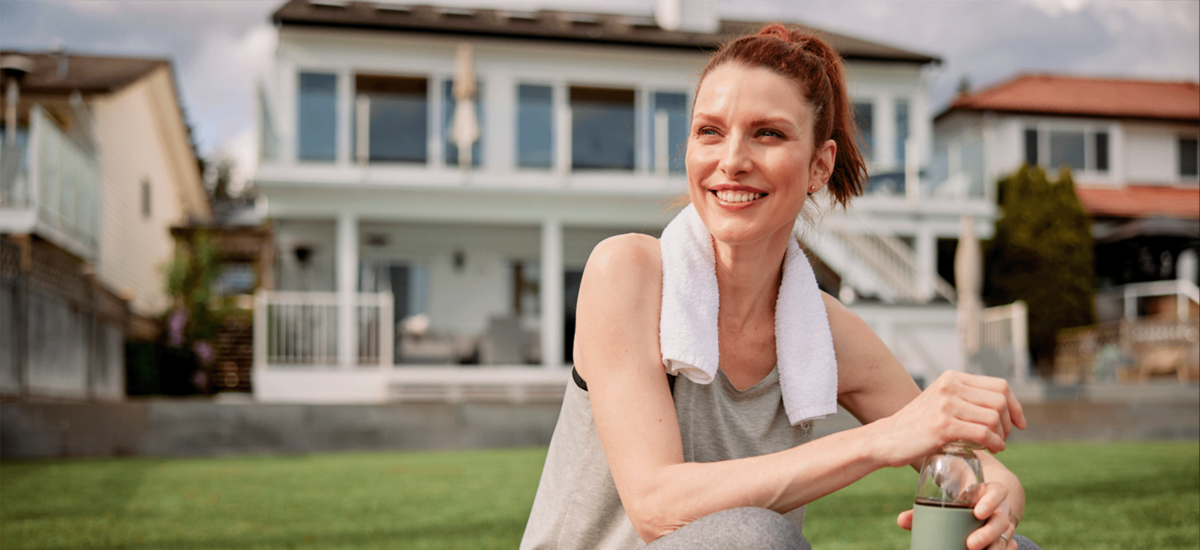
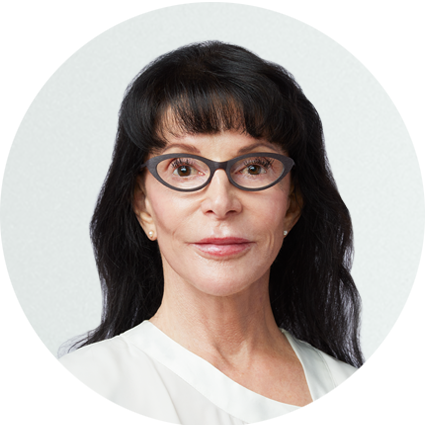




Jackie De Jong
November 5, 2022 , 6:42 amHi Lara
Thanks for your insights on calcium, been very informative. I have alot of issues with my body so I would love to have a chat with you of how to use AlgaeCal Plus etc to its potential. Had a bone density scan and I lost 33% of bone density in my right hip within two years. I need some help.
Thanks
Jackie